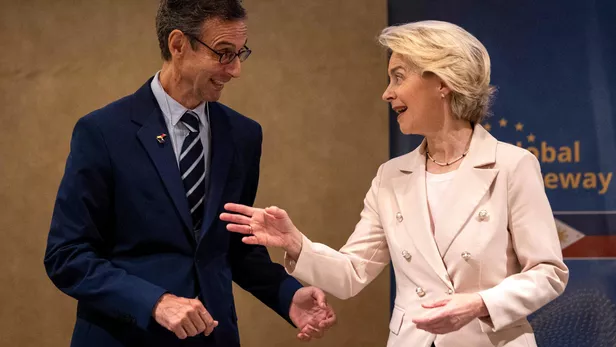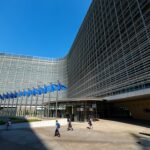The European Union and the Philippines have decided to resume negotiations for a free trade agreement, to usher in “a new era of cooperation”, European Commission President Ursula von der Leyen said on Monday. , traveling to Manila. Talks began in 2015, under President Benigno Aquino, but were halted two years later under his successor Rodrigo Duterte, whose deadly war on drugs strained diplomatic relations with Westerners and sparked an international investigation.
“I am very happy that we have decided to relaunch the negotiations for (a) free trade agreement,” said Ursula von der Leyen, during a joint press conference with the new president Ferdinand Marcos Jr. “Our teams will get to work now to put in place the right conditions so that we can resume negotiations,” she added, stressing the “enormous potential” of such an agreement for both partners in terms of jobs and growth.
Exports without customs duties
For Ferdinand Marcos Jr, the Philippines and the EU are “like-minded partners” with “common values”: “democracy, sustainable and inclusive prosperity, rule of law, peace and stability, and human rights”. Currently, the EU is the fourth largest trading partner of the Philippines, which benefits from the European Generalized System of Preferences Plus (GSP+). This allows them to export 6,274 products to the EU without paying customs duties, but Manila will see this mechanism expire at the end of the year.
The Generalized System of Preferences is a device that allows the import into the EU of goods from developing countries at reduced or zero rates. As part of the GSP+, which concerns developing countries, Brussels removes its import customs duties on two thirds of different categories of products in exchange for the implementation of 27 international conventions on human rights, the right labour, the environment and good governance.
Observers and members of the European Parliament had asked the EU to suspend any extension of this device in favor of the Philippines because of the anti-drug crackdown launched by Rodrigo Duterte, which cost the lives of thousands of people. This war on narcotics continues with Ferdinand Marcos Jr. A Filipino watchdog group estimates that more than 350 people have been killed since he took power in June 2022.
Philippe Dam, EU advocacy director of the NGO Human Rights Watch, expressed concern that Ursula von der Leyen “cannot be heard addressing issues of human rights and civil liberties”. “The human rights situation in the Philippines remains dire,” warned Philippe Dam in a statement.
This article is originally published on .lefigaro.fr









